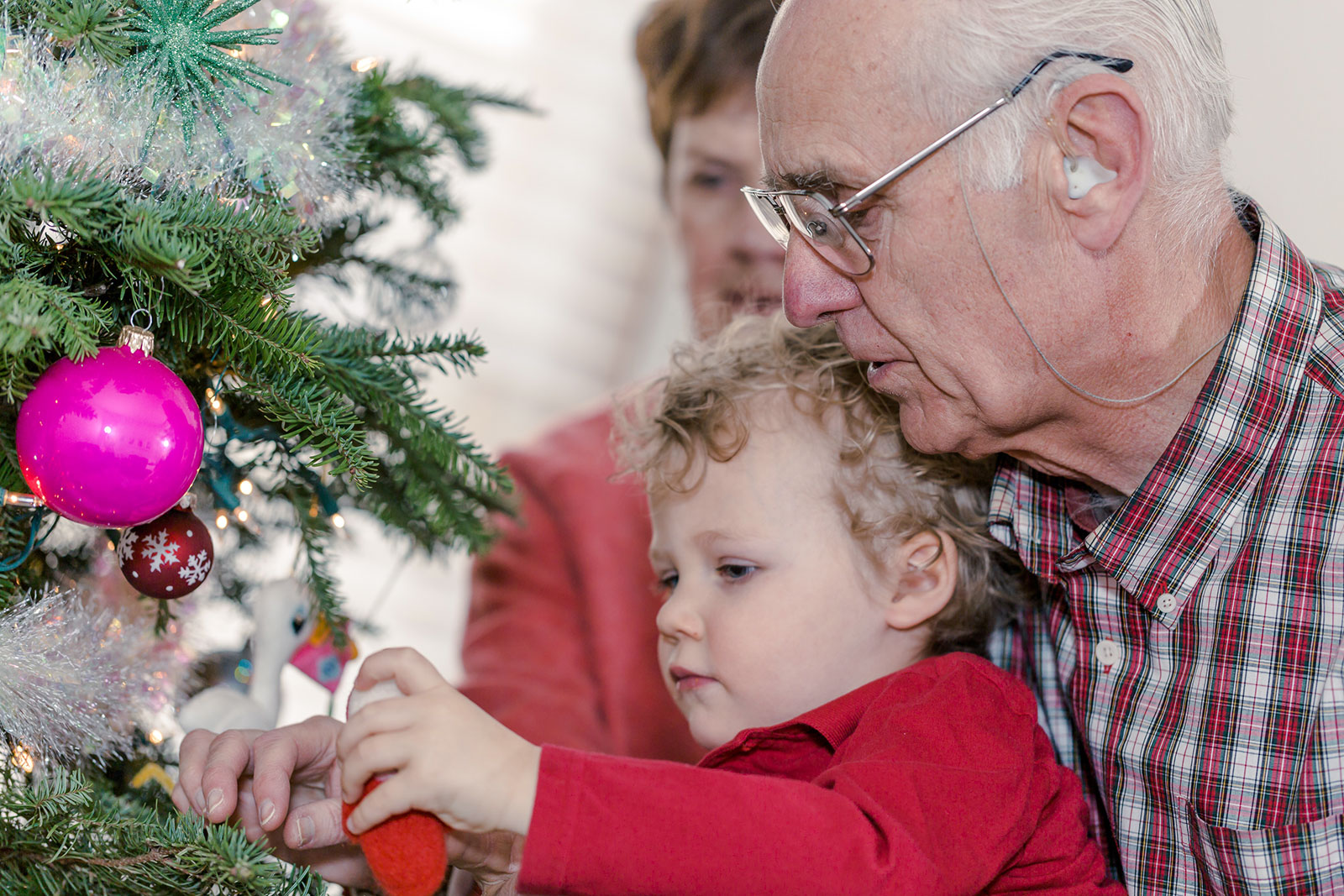With the holiday season upon us, we all go into a “go mode” and between shopping for gifts, preparing our homes with decorations, and cooking special meals, holiday cookies and treats, and putting together a guest list, some of us forget that when we are bringing a senior loved one into their home for the holiday season is a unique situation.
Unlike those who are fully mobile and vibrant, an elder loved one may have physical and mental needs that need to be addressed. Here are some tips to help:
- Prepare for the visit. Keep in mind if your senior loved one has mobility issues or if their vision or hearing is impaired, that coming into a new space will present its form of challenges. A lot of Christmas lights, noises, an over-abundance of decorations or unfamiliar foods can certainly present a problem. Create a calming and easy environment for them to enter.
- Prepare family members for their interaction. Encourage your family members to have individual one-on-one time with your loved one. It doesn’t have to be long. 5 minutes is perfect! If your loved one is hard of hearing, help family members understand what your loved one needs in the way of communication.
- Find a perfect place for them to sit. Setting aside a loveseat where someone can sit next to them in a quiet area of the home is ideal. If there is a throw blanket available have it there. Seniors can often need more heat as they are aging.
- Put out family photo albums. This is a great time and a great way for family members to connect. Ask questions about the photos- not asking if they remember, but say, “Mom, tell me about this time.” “Dad, you always made holidays special, and I see here how you did this.” If they have a bit of dementia, they may not remember all the facts. It’s ok! Just allow the conversation to unfold.
- Honor their Schedule. In many cases, seniors need to take a nap to get through the day. They may have dietary requirements and may need medications at certain hours. Before bringing them into your home for the holiday check out and learn completely what that schedule is. If they live in assisted living, the nursing staff should be able to give you the proper medications and times for them to be taken.
- Keep background noise to a minimum. If your love one has a hearing issue, background music can interfere from their ability to hear others. If too many people are talking, it can be overwhelming. Strive for a calm environment!
- Double check on dietary restrictions and alcohol intake! Make sure you check with any healthcare practitioners, if your loved one has some dietary restrictions that might conflict with medications they are taking. That also includes alcohol intake. If they are diabetic, it may involve sweets as well. If sweets are an issue, don’t leave bowls of Christmas candy sitting out!
- Have an extra set of clothing and incontinence supplies on hand. If your loved one gets overly excited or is in an unfamiliar surrounding it can cause a greater deal of stress over the situation, and thus, accidents can happen.
- Provide a resting place. If your loved one needs a catnap or just a place to unwind, the best thing you can do is provide a place to go to have a timeout. Make the place cozy and warm.
- Watch for the “I’m Done” clues. If your loved one starts staring out into space and not engaging with everyone, or if they get “snappy” with others, it may be time to end their visit. Have an exit plan in place so that when it’s time for them to go, that you as a family can make that happen.













